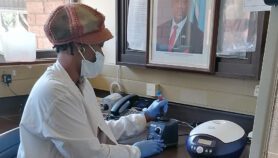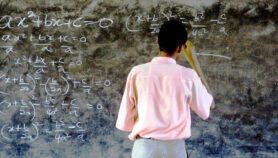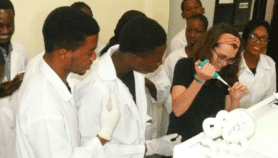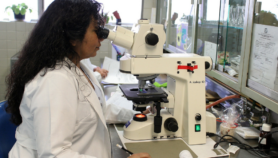By: Aleem Ahmed
Send to a friend
The details you provide on this page will not be used to send unsolicited email, and will not be sold to a 3rd party. See privacy policy.
[ISLAMABAD] Science academies in the Muslim world should adopt a "unified approach" to boost scientific capacity and promote scientific solutions to development issues, concluded a conference held in Islamabad, Pakistan, on 19-20 April.
The chairs of the academies gathered at the conference met to discuss strategies for using science to speed up socioeconomic development in member countries of the Organization of the Islamic Conference (OIC).
Participants agreed that since OIC member countries have much in common — such as socioeconomic status and cultural traditions — they should also use a common strategy to solve problems related to science and technology.
Atta-ur-Rahman, chair of the Network of Academies of Sciences in Islamic Countries and head of Pakistan’s Higher Education Commission, said that Pakistan’s ‘digital library programme’ has greatly helped scientists by giving them free access to more than 12,000 online research journals.
He said the Higher Education Commission would help other OIC countries interested in setting up similar digital libraries.
Rahman also offered OIC members access to PAKSAT-1, Pakistan’s communications satellite that transmits educational programmes. Bought two years ago from international telecoms giant Hughes, PAKSAT-1 covers North Africa, the Middle East and parts of South-East Asia as well as Pakistan.
Science academies in OIC states in these regions could use the satellite — at a nominal cost — to enhance distance learning, said Rahman.
Rahman said that Muslim countries spend just 0.2 per cent of their gross domestic product on scientific research and development. Despite this gap, he hoped that Muslim countries would recognise the pivotal role of science and technology in their development and in programmes to eradicate poverty.
Though the conference focused primarily on higher education and scientific research, it also discussed plans to launch a popular science magazine and improve science education for schoolchildren.
"Without lower education, there is no higher education," says Anwar Nasim, chair of Pakistan’s National Commission on Biotechnology (NCB).
Nasim says it is important to popularise science in OIC countries, emphasising that socioeconomic prosperity would never be achieved unless these countries pay proper attention to their children’s scientific education.
Nasim says a passion for science at a young age creates a more capable scientist, adding that Muslim countries should focus on understanding science rather than just memorising it.
The Islamabad conference was organised by the Pakistan Academy of Sciences, the Network of Academies of Sciences in Islamic Countries, the OIC Standing Committee on Science and Technology (COMSTECH), Pakistan’s Higher Education Commission, and the Academy of Science for the Developing World (TWAS) based in Trieste, Italy.
Meeting with the scientists from Bangladesh, Egypt, Indonesia, Jordan, Malaysia, Pakistan, Palestine, Senegal and Uganda were representatives from TWAS and Michael Clegg, foreign secretary of the US National Academy of Sciences.













